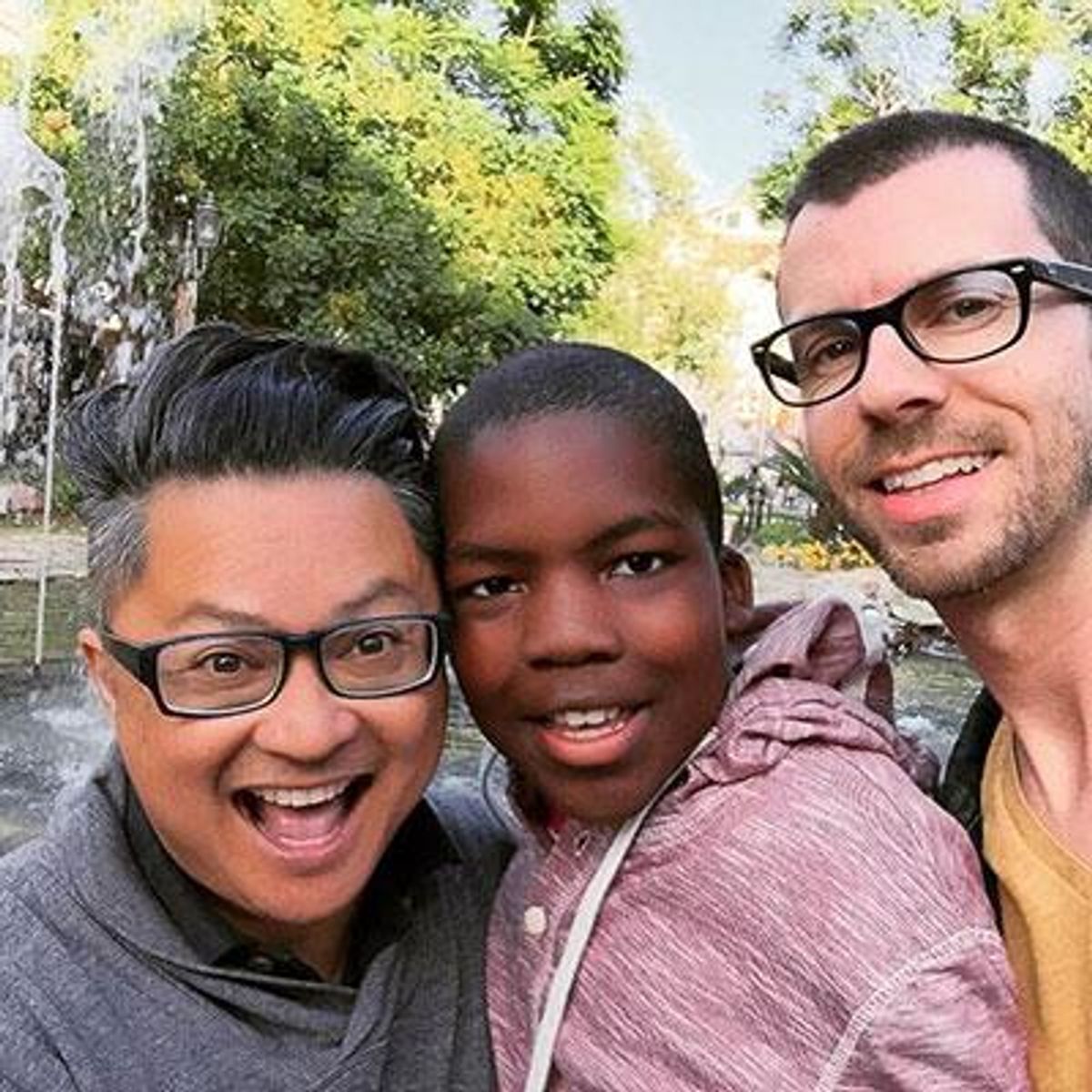My main reaction to the Matt Lauer interview with Rachel Dolezal was a big Scooby-Doo "Huh?" complete with a gravelly upward inflection. Her inability to answer the simplest questions -- Are you Caucasian? Are you African-American? -- was puzzling given how much exposure her ethnic trick-or-treating had been given on every single possible media platform. I would've had far more respect for her if she had said, "I'm white, but this is the group of people I love and with whom I identify. And my hair looks fucking fabulous."
Sadly, those weren't her answers. Sadder still was the inference that it wouldn't have been plausible for her to be the mother of her black children as a white woman. To wit: "I've actually had to go there with the experience ... the point at which that really solidified was when I got full custody of Isaiah and he said, 'You're my real mom.' He's in high school, and for that to be something that is plausible, I certainly can't be seen as white and be Isaiah's mom." As a gay Asian man married to a white man with an adopted black son, I would have to disagree.
In my Showtime special Alec Mapa: Baby Daddy (available at Showtime on Demand or as a digital download at AlecMapa.com) I speak at length about transracial adoption and how it's transformed our lives. My husband and I are the very plausible parents of a black son, but that hasn't given either of us the experience of blackness. I'm a Filipino man from San Francisco. My husband is Cajun, born in Louisiana. Our perception of the world through those respective lenses is hardwired. We adopted our son when he was 5 years old and had to be up front about our differences immediately. I explained I was Filipino, Papa was Cajun, which made him a little French, and that he was African-American. Yes, none of us look alike, but the thing that made us a family was that we embraced each other's differences and that we loved each other. Picking him up from his first day of kindergarten a classmate asked my son, "You have two dads?" My son said, "Yes!" "Why?" his classmate pressed. "Because we're French!" he answered loudly.
Rachel Dolezal's opinion that she would only be plausible as the parent of a black child as a black woman is not unique. As recently as 1972 it was the officially held position of the National Association of Black Social Workers that transracial adoption was detrimental to the well-being of black children. Fearing that transracial adoption inevitably led to the complete loss of cultural identity, an official statement dated September 1972 read:
"The National Association of Black Social Workers has taken the vehement stand against the placement of black children in white homes for any reason. We affirm the inviolable position of Black Children in Black families where they belong physically, psychologically, and culturally in order that they receive the total sense of themselves and develop a sound projection of their future."
This position was no longer tenable after the Multi-Ethnic Placement Act was passed by Congress in 1994 as part of federal efforts to reduce mounting delays in the permanent placement of children in adoptive homes. The major provisions of this act prohibited agencies from refusing or delaying foster or adoptive placements because of a child or parent's race, color, or national origin.
It was this act that made families such as mine possible. I fully understand that the loss of cultural identity is a very real hazard in transracial adoption. If I'd been adopted by a white parents, no amount of chicken adobo or pancit would give me the context of what it would be like to be raised by Filipino parents. Similarly, my husband and I can never give my son the experience of being raised by black parents. One of the biggest parts of honoring our son's racial identity is recognizing the limits of our own. To say we own the experience of blackness simply because our son is black would be preposterous and inaccurate. We try to empower him with as much knowledge and history as humanly possible and supply him with positive black role models who can impart firsthand what it means to be black in this country. We may not have all the answers my son needs to know who he is, but we are determined to help him find them. Our greatest hope is that his identity will be shaped by how much he is loved and respected by us.
Luckily, the things my son needs most -- safety, stability, love, and affection -- do not require us to be a specific ethnicity. Effective parenting requires us both be present and give our best effort on daily basis. It's not for everyone. When we adopted our son, my fabulous friend and fellow gay dad Michael Shepperd said, "Well, you black now." Michael is a 6-foot-6 black man with a basement-deep, sonorous voice, which makes me accept anything he says as the gospel truth. What he meant was, having a black child would permanently change us, and it did. My husband is still white, and I'm still Asian, but the biggest difference is everything that affects black people in this country now directly affects us as a family. The 12-year-old shot dead by the police while playing with a toy gun, a girl held facedown on the pavement for attending a pool party, parishioners viciously murdered as they worshipped -- as parents of a black son, those are the injustices that infuriate us. Those are the stories that keep us up at night. That anxiety doesn't make us black. It makes us empathetic.
ALEC MAPA is an actor, writer, and comedian. He most recently appeared on Lifetime's Devious Maids and wrote and starred in Alec Mapa: Baby Daddy. Mapa lives in Los Angeles with his husband and son.

















































































